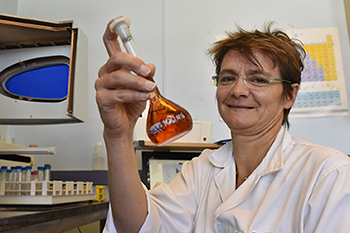Latest News Archive
Please select Category, Year, and then Month to display items
12 May 2023
|
Story Mbali Moiketsi
|
Photo iStock

Visiting universities and learning more about them is an essential part of prospective students’ journey into higher education. The University of the Free State (UFS) has launched the Kovsie-Connect Virtual Experience.
This is an initiative of the Student Recruitment Services in partnership with the Office for International Affairs to give the modern-day prospective student an experience of what the University of the Free State can offer. The Kovsie-Connect Virtual Experience is an interactive online platform that allows prospective students to engage and learn more about the UFS from the comfort of their own homes.
The Virtual Experience is tailor-made for local and international prospective students with the aim of providing an overview of academic offerings, facilities, and student life through a series of online documents, pre-recorded videos, and virtual tours.
The virtual format allows for easy accessibility and convenience, as potential students can attend the event from anywhere in the world without the need for travel. This experience aims to provide students with the information they need to make an informed decision and Choose the UFS!
 Click here to access the tour
Click here to access the tour.
UFS Ground Studies Laboratory receives accreditation to international standard
2016-03-18

Lore-Mari Deysel, Deputy-Director of the institute for Groundwater Studies.
Photo: Charl Devenish |
The Institute for Groundwater Studies (IGS) Laboratory at the University of the Free State is on equal footing with international testing labs. With its accreditation in March 2016 by SANAS (South African National Accreditation System), the IGS Laboratory now officially meets global standards.
Quality of water
The IGS Laboratory mainly analyses the quality of water samples. When it was originally established in 1989, the lab’s central function was to conduct testing for researchers at the institute itself. “After the public and water boards realised their need to analyse water samples, the IGS Laboratory expanded to deliver a service to these clients,” says Lore-Mari Deysel, Deputy-Director of the institute.
Since suppliers and regulatory authorities will not accept test or calibration results from a lab that is not accredited, the IGS initiated the accreditation process.
Accreditation to international standard
In order to be deemed technically competent and able to receive accreditation, labs must meet the ISO/IEC 17025 standard. ISO/IEC 17025 was first issued in 1999 by the ISO (International Organization for Standardization) and the IEC (International Electrotechnical Commission).According to Deysel, this is the single most important standard for calibration and testing laboratories around the world.
“Laboratories that are accredited to this international standard have demonstrated that they are technically competent and able to produce precise and accurate test and/or calibration data. Furthermore, it demonstrates that the university has the capacity to supply valuable and reliable services alongside the academy,” Deysel says.